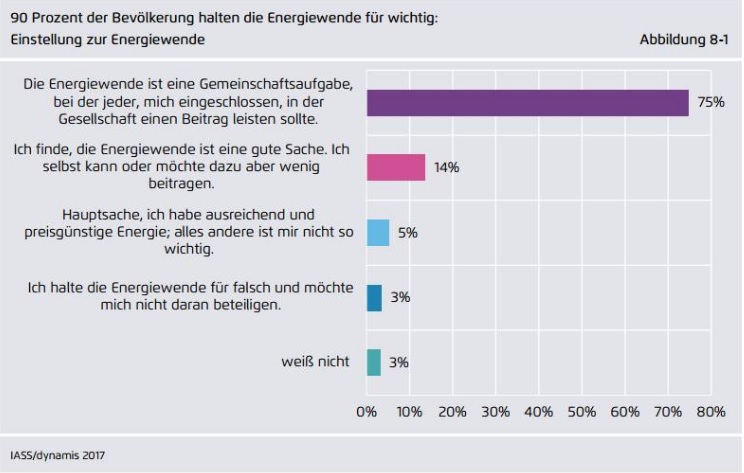關鍵字
:

*封面圖片取自經濟部中小企業處節能減碳資訊網
跨領域方法的承諾、現實、與隱憂
The Promises, the Reality, and the Menace of Transdisciplinary Approaches
聽Ortwin Renn博士的永續座談後有感
Some thoughts after attending the sustainable talks
from Dr. h.c Ortwin Renn
文/Tony Yen (媽盟特約撰述)

我的教授Anke Weidlich博士常常會邀請各界人士舉辦永續講座給學生,以激發大家的思考。5日,很湊巧地我們邀到了在台灣風險治理和跨領域永續治理很有名的學者,Institute for Advanced Sustainability Studies (IASS)的Ortwin Renn博士來演講。
My professor Dr. Anke Weidlich likes to hold sustainable talks with people from different backgrounds to give inputs to her engineer students; on 5th of November, by pure chance, she invented one of the most famous German scholars in the corresponding Taiwanese academic sphere: professor Dr. h.c. Ortwin Renn of the Institute for Advanced Sustainability Studies (IASS).
他那晚關於跨領域永續治理的演講,正如風險社會與政策研究中心過去介紹給台灣學者地一般,十分精采。
His talk that night on transdisciplinary approaches to sustainability studies was, without doubt, insightful, just like those the Risk Society and Policy Research Center had introduced to scholars in Taiwan.
簡而言之,Ortwin Renn教授認為,在社會轉型過程中,我們還是需要傳統意義上、受好奇心驅使的「古典科學」;然而另一方面,我們同時也需要問題導向的「策略科學」以縱觀轉型大局,以及確保前述兩種科學範疇不背離社會過遠的「催化科學」。
To summarize his main points, during a transitional phase of the society we would still need the curiosity-driven “classical science”, the tradition way of doing research as most people think of it; however, we will also need the problem-oriented “strategic science” that unfolds for us the full picture of the transition process, and a third kind of “catalytic science” that makes sure the former two types of science are not disconnected with the society.
必須重新對科學的範疇做出分類的原因在於,科學本身已經變得更複雜、更具不確定性、並且被更多領域內才懂得術語環繞,令外界難以理解。這造就了社會大眾開始不再相信科學社群的危機。因此,所謂的「催化科學」必須介入,研究社會大眾如何再次信任科學社群。
The reason for this need of new categories of science is because science itself has become more complex, more uncertain, and more full of field-specific jargons that no one else can understand. This creates a crisis that the public begins to lose trust of the scientific community, and thus the “catalytic science” must kick in to study how to regain the people’s trust.
做為演講中的一個例子,Ortwin Renn教授舉了自己在除煤委員會參與時的經驗:不同的科學家、代表不同的立場,因為不同的假設得出不同的結論,卻沒有事前相互討論過。最後得出來的2038除煤時程,與其說是科學計算,不如說是各研究者角力折衝之後、加上保守政治考量的結果。
As one of the real-world examples, he provided us some of his thoughts during his involvement in the coal commission: different scientists, representing different positions, give different research results based on different assumptions, without discussing much with each other beforehand. The resulting 2038 deadline was more of a result of bargaining and averaging of the studies plus some conservative political thinking, rather than any sensible scientific-based calculation.
不過,讓我們對演講本身的討論暫時停在這裡,並講一些我在活動過程觀察到的其他東西,因為它們對我即將結束的兩年德國留學生活,提供了一些結論性的觀點。
However, let us leave his speech like that as for now, and discuss some other things I happened to observe during the event, since they provided conclusive insights on my two-year study in Germany that is about to end.
第一個是,雖然這是一個討論跨領域方法的演講,前來參與的絕大多數還是永續工程或再生能源工程碩士學位的學生們;即使在校內的永續圈內,這也是一個很狹隘的族群。
The first was that, although the topic was about transdisciplinary approaches, there were probably only students from sustainable engineering and renewable energy engineering attending the event, which was a very narrow band of the population within the university community, even among those who cared about sustainability.
唯一一個例外是我在學生議會的永續委員會認識的朋友,她告訴我除了我以外該活動她不認識其他任何參與者。我們接著討論了台灣的撤資運動,以及我不久將來的規劃。
The only exception was a friend from the Umweltreferat, and she told me she did not find anyone she knew apart from me. We then talked about the divestment movements in Taiwan, and my whereabouts in the near future.
在工學院進行這樣的討論,有種超現實的感覺。這讓我想起,在我待在Freiburg的兩年期間,城市中似乎一直存在著兩個永續同溫層:其中一個次我的同學,另外一個是我氣候行動中的戰友。兩個圈圈很少有所交集,好似存在於不同的平行宇宙中。
Having a discussion like that in a Fraunhofer technical building was to some extent surreal. It reminded me that during my two years of stay in Freiburg, there seemed to have two circles of sustainability in the city: one in which I studied, the other in which I took climate actions with. Both circles seldom interact with one another, as if they exist in two parallel universes.
這對我來說當然不是新鮮事;在台灣,自稱理組工程師的人們,和環境團體的關係百萬倍地更緊張,有些能源轉型懷疑論者甚至會說出綠能是只有文青才會支持的東西!
This is, of course, no new thing for me; the relationship between self-proclaimed engineers and environmental groups is perhaps a million times tenser in Taiwan, to an extent that some energy transition skeptics claim only people who study social science would support renewable energy!
然而,初到Freiburg時,我原預期這種現象不會發生,卻發現它只是以更隱晦的方式存在著。演講時這番經驗讓我憶起我這兩年一個過於龐大而終未實現的目標,那就是將這兩個族群橋接為一。
Nevertheless, I expected this phenomenon would be non-existent in Freiburg when I first came here, only to find that it still exists in a more vague context. The experience during that speech was yet another reminder of the goal I set too large to realize during these two years: to bridge two communities into one (To Miri: this is the “failure” I was referring to).
第二個是,在和再生能源工程以及永續工程的同學聊天的過程,似乎眾人有種感覺是演講內容太多抽象而難以跟上、或者如某人所言,「過於哲學性」。我能理解他們的意思。工程師的訓練往往讓我們省略簡介和文獻回顧的頭5000字,而直接翻到報告中公式、數字、或圖示的那幾頁。但Ortwin Renn教授的演講沒有提供任何一張統計圖表給我們閱覽。事實上,他根本沒有使用簡報!這在我們的課堂上或專題報告中是非常罕見地。
Secondly, common feedback I received from the engineer students in REM and SSE was that it was a speech too abstract to follow, or, in one’s own words, too “philosophical”. I got what they were talking about. We as future engineers are used to neglect the 5000 words in the introduction and literature review, and cut straight into equations, numbers, and figures of a report. Yet professor Renn did not show any graph or statistic during his speech. In fact, he did not prepare any slide to show us! You do not see that very often in our lectures or colloquiums.
工程師的訓練就是永遠要尋找具體、可操作、精確、且量化過的事物;尤是,對工程師來說,文字的價值遠小於數字。這次的演講,正如我們教授指出的,「迫使我們專注於講者的字句之間。」
It is in the training of an engineer to always look for something concrete, something operable, something precise and well-quantified; consequently, words are less valued than numbers in our culture of communication. I think this speech was actually a good way to, like Professor Weidlich said, “to concentrate oneself on the words”.
最後也較個人的事情,是我當時的提問:公共意見對於能源轉型支持度的潛在擺盪;這當然是很「台灣」的提問,但普遍來說民主社會裡有越來越多這種案例(比如脫歐公投)。
The last and most personal thing was related to the question I asked: the inconsistency of the public opinions regarding the energy transition policy. This was, of course, a very “Taiwanese” question, but in general, we saw a similar trend in the democratic societies around the world (e.g. Brexit).
當一個社會中「擺盪式信任」成為主流,人們不再用和議題直接相關的標準做評斷孰是孰非的依據時,公共輿論往往會快速且劇烈地變化。在過去十一個月內,韓國瑜的興起與覆滅便是明證;這當中最大的源由不是台灣多數人突然支持同婚、或者終於全盤理解並接納能源轉型;這當中主要的原因還是在於香港、美中貿易戰、以及其他中國政經對策上的近期失誤。
In a society where “traveling trust” (the term professor Renn used to describe people who did not know who to believe and thus based their opinions on reasons irrelevant of the topic) dominates, public opinion may vary drastically and abruptly. In just eleven months from last November’s landslide election and referenda, we witnessed the rise and fall of the popularity of the conservative Chinese nationalist party in Taiwan; not because that the majority of Taiwanese suddenly accepted gay marriage or completely embraced energy transition, but because of Hong Kong, the Sino-America trade war, and many other political/economic blunders the Chinese government has made lately.
因此,我問,「策略科學家」或「催化科學家」們在面對高度分歧社會中的這些不確定性時,該如何自處?Ortwin Renn教授的意見似乎是,我們必須把催化科學家們放進所有的政黨中,讓能源轉型成為社會共識。畢竟我們也很清楚,20年前德國的某些主要政黨和電力企業是怎麼輕視再生能源的。
Thus, I asked, what should “strategic scientists” or “catalyst scientists” do, amidst these uncertainties in a highly divided democratic society. The answer, according to Professor Renn, seemed to be putting catalyst scientists into all the political parties and make the energy transition a bipartisan/multipartisan consensus. After all, we all knew what the main political parties and electricity utilities in Germany said about renewable energy 20 years ago.
https://twitter.com/Arne_JJ/status/1014821668211122176
但這樣的解方有兩個問題。第一個是技術性的,正如AfD,國民黨很多政要也有投資在再生能源當中,亦即他們並不是真正看衰綠能而攻擊它們,而是投部分選民所好、同時也必須和執政者的立場做出市場區隔。
There were two problems I thought of to this solution, however. The first is a technical one; like AfD, many politicians in the Chinese nationalist party actually invest heavily in the renewable energy sector. These people bash wind and solar not because they do not believe in the promising future of renewable energy, but rather they do it because either their supporters don’t believe in such a future, or they need something to show their opposing position to the government.
第二個我想到的問題是「催化科學」對於民主的潛在威脅。這聽起來很弔詭,但過去11個月我某種程度上見證到這件事。台灣的許多能源轉型支持者在公投失利後,以最慘痛的方式學習如何運用這種「催化科學」。在研究了公眾的偏好以後,他們似乎得出結論,在討論能源轉型時,只須強調底下三點:一、能源轉型不會讓台灣缺電;二、能源轉型有助於社會整體的經濟發展;三、能源轉型將大幅改善空污。
The second problem I had in mind was the potential threat to democracy of using “catalyst science”. This is very paradoxical, but I have witnessed it myself in the past 11 months. Many of the supporters of the energy transition in Taiwan were forced to learn this “catalyst science” in a very hard way after the referenda. After studying the preference of the public, it seemed that they concluded that there were only three things important to mention about the energy transition: 1. that the lights will not go out, 2. that the society will benefit economically, and 3. air quality will improve.
這三個論點都是真實的,但你很容易就能看出,一些能源轉型過程中同等重要的面向,卻也被忽略了:能源民主、系統轉型、全球性團結、去成長化等等只是其中一些。換言之,真正的永續議題,基於選民喜好或者潛在的反對危機,在過去11個月都沒有被正面討論到。
All of the three statements above are true, but as you can see, some important aspects of the energy transition are omitted: energy democracy, system change, global solidarity, debate on de-growth, to name a few. In other words, the real sustainable issues were dogded during the last eleven months of campaigning, simply because that is something the public is not interesting or will potentially oppose.
當然,人們可以爭論,這畢竟不是「催化科學」應該被運用的方式。但假設一群科學家發現集體行為或心理的重要規律,我們又如何能保障這些發現運用得宜,讓社會走向更開放且證據導向的討論,而非恰好相反?極端一點,在一個威權政府底下,「催化科學家」不就只是思想控制/洗腦教育的研究者?
Of course, one can argue, that this is not how “catalyst science” should have been conducted. But if a group of scientists finds out important behavior or psychological patterns of the public, who is there to guarantee that this knowledge would be used to lead the society to a more open and evident-based discussion, and not the exact opposite? To the extreme, in an authoritarian government, wouldn’t “catalyst scientists” just a synocrom for mind-controlling / brainwashing researchers?
如果進步政治的支持者能研究催化科學,那麼保守政治的支持者同樣也能;而去年的公投已經揭示,他們有時還更能掌握這門嶄新科學的精髓。畢竟,不論事物是否真實,要人們相信其的手段總是類似。
If the supporters of the progressive politics can study catalyst science, so will the conservatives; and, as the referenda last year have shown us, sometimes they learn much better in this new field of science. After all, it takes the same approaches to convince a person to believe in something that is true or not true.
這當然不構成進步政治的支持者放棄催化科學的理由,因為即便他們如此做,政治光譜另一端的支持者只會更加濫用這部分的科學。於是乎事情越來越朝向一場兩敵對勢力的軍備競賽發展,而不再有理想中的民主程序存在的可能。即使進步政治再目前相對去年狀況較為起色,情形仍令人擔憂,因為「擺盪式信任」當道的社會中,影響群眾支持何方的因素,往往無法被掌握甚至被預測。Ortwin Renn教授也提到,假如這幾年氣候再濕冷一點,氣候罷課的大眾支持度恐怕就會減弱。
This is of course not the reason why supporters of the progressive politics should give up on catalyst science, because even if they do so, the other side will just exploit that realm of science more. For me it is gradually evolving into more of an arm race between two rival powers than an ideal democratic process (if such concept really ever makes sense); even the odds seem to favor the progressive side a little bit now, it is still worrisome, because the support of the people at the age of “traveling trust” comes from factors we simply cannot control or even predict. Just as professor Renn said, “if the weather starts to get rainy this year, people might not support Fridays for Future that much”.
而這似乎是一個我們尚不知如何處理的難題。
And we yet do not have an answer to how to deal with that.